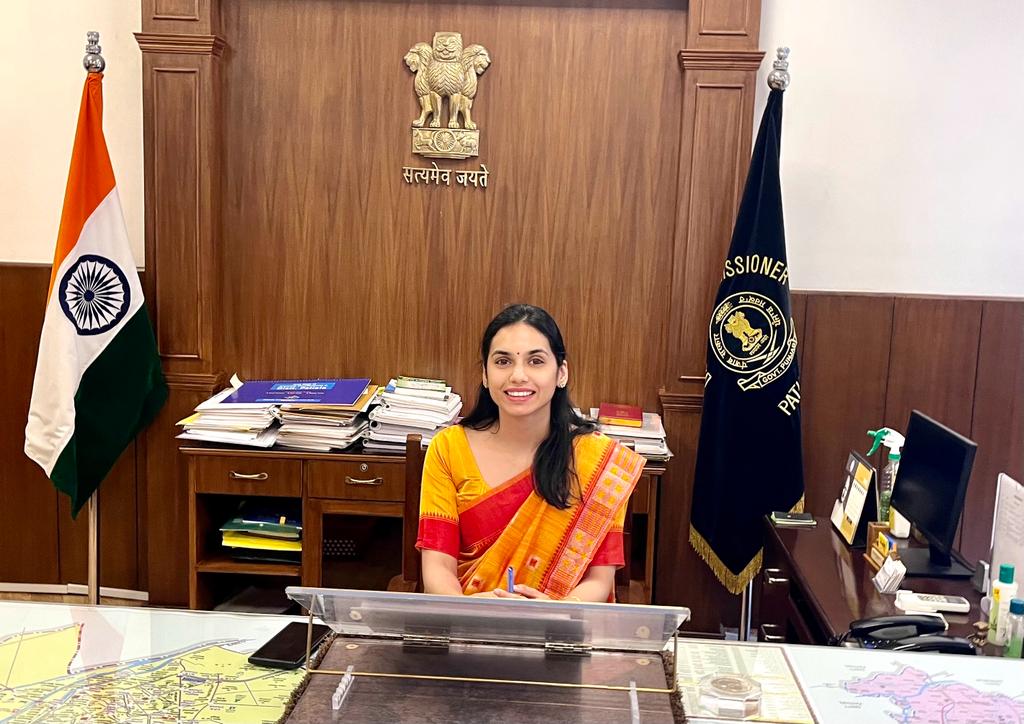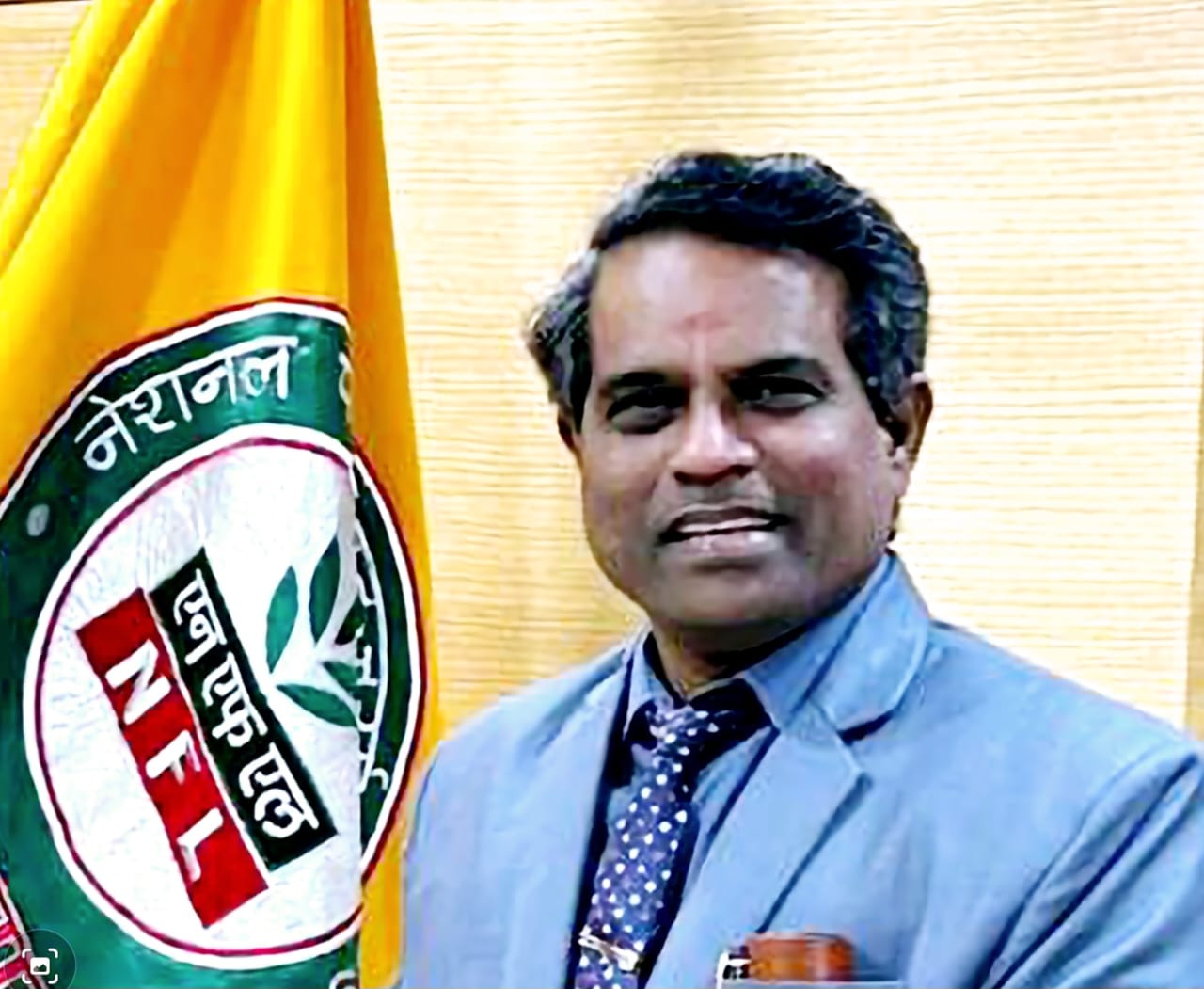Team Patiala did an amazing work on stubble management by taking the stakeholders’ approach: DC Sakshi Sawhney, IAS
Author: Medha Singh

Just when she was aspiring to become a glamorous young solicitor in her early 20s while pursuing her LLB at India’s leading Law University - NALSAR in Hyderabad, Sakshi Sawhney came across the idea of trying for Civil Services, specifically IAS, given the depth of opportunity it gives to serve the society. A determined Sakshi joined the IAS in 2014 in the Punjab cadre, and created a mark in every posting she has served so far. Presently she is serving as the Deputy Commissioner of Patiala - and she is the first woman to become the DC here. Always leading from the front, she has to her credit numerous innovative interventions that have earned her applause from all. In an exclusive interview with Navneet Anand, Editor-In-Chief, Bureaucrats India and Vigya Dwivedi, Assistant Editor, Sakshi shared her vision on a host of issues including those of drugs abuse and stubble burning. Here are excerpts:
How do you feel as the first woman DC of Patiala? How has been the journey so far?
Being the first lady DC of Patiala was of course breaking of a glass ceiling of sorts and I hope that such glass ceilings cease to exist after a point in time and women are able to claim space as they should. Patiala has a rich cultural and heritage legacy and has a mix of rural and urban issues on a daily basis. So, it has been a very incredible journey. I have learnt a lot everyday from the various people I meet and from people from all walks of life. As Patiala is also a kind of educational and sports hub, there is a lot to learn here and a lot to do.
How has been the experience of serving people, of understanding people, of empathy, and of compassion and of service so far
IAS is a career that gives one a huge opportunity of a lifetime and allows you to to use your education, skill set, experience to help people. It gives a lot of satisfaction at the end of the day. One has to balance between efficiency, equity, and you have to achieve things while balancing the monoliths along with the fluidity of whatever is happening. One has to deal with things as varied as one can such as Covid, stubble burning; things that usually would be very specialist. As a generalist you have to work with these and evolve with these.
Your bio on Twitter reads mother, IAS, DC Patiala and you have been fortunate to have a baby girl. Share some experience on the bliss of motherhood. Being a teacher’s daughter, there must be a teacher in you also?
It has been a beautiful adventure. Many times it’s been a roller coaster ride as well. Children are our big conscious keepers because we have to be at our best with our behaviour since they will be emulating you, they will be seeing what you are doing. My daughter is a feisty young 2.5 years old. She has a mind of her own; she has her own unique personality and it’s a pleasure to watch her grow up. She is a huge stress buster for me whenever I come home. It’s really amazing to just be able to spend time with her.
I had to leave my daughter at home many times and I realised that a lot of the women working in my office would also have the same problem. So we actually opened a creche which is a 9 to 5 creche in our office called Kilkaria, which is for all our employees. In fact, even my daughter is enrolled in the same creche.
Stubble burning has always been a sensitive issue. A lot is being done on the ground in Patiala for CRM. Take us through what all has been happening to check stubble burning.
Stubble burning is a very complicated issue. Its resolution involves sustainable agricultural practices, economic transactional issues, market issues, and mindset issues. To operate in a charged environment is a very challenging task for the administration. It is one of the biggest challenges that we have been handling. We try to micro detail a lot. We actually got into the market of what is available for farmers. The government gives a subsidy on crop residue management machinery. So, our idea was first of all to ensure that the machinery is immediately sanctioned to farmers who are interested and enough awareness is created much before the season begins.
Do you get support from NGOs and other stakeholders?
I think we have a lot of NGOs that helped us including Ambuja Cement, Syngenta Foundation with the PRANA project, and the CII Foundation. Their support is vital in managing crop residue. Together, we have done a huge campaign on the importance of in-situ management of stubble.
We have also used the incentive method. The villages that do not burn any stubble, are provided with 100 per cent stubble management support. We have tried to take the farmers along, get their feedback, change tactics midway to try to meet the demand, create a market which we have never done before. This year, we have already managed around 60-62 per cent of our stubble. We are almost towards the end of our season. Stubble burning is going to be considerably reduced this year. We have seen some positive outcomes. Of course, we have had a lot of learnings for the next year as well.
Promoting Regenerative and No-burn Agriculture (PRANA) is an important initiative of The Nature Conservancy, across 12 districts of Punjab to ensure CRM effectively. It is a 4-year project. How do you look at such interventions?
I do appreciate the PRANA project of The Nature Conservancy. All stakeholders need to work together to realize the common goal – that is, freedom from stubble burning in Punjab. PRANA and The Nature Conservancy have really helped us a lot. More and more help from organizations like The Nature Conservancy will go a long way in our fight against stubble burning. As an IAS officer, I have a huge opportunity to ensure Patiala is free from the trouble of stubble burning sooner the better.
You have also used Artificial Intelligence (AI) in education. From where did you get the motivation?
I strongly believe in the power of education, especially in uplifting the entire generation from not so privileged circumstances to a much better and brighter future. Therefore, I have always considered education a priority. In order to bridge learning gaps among our students, we collaborated initially with EduTech’s MindSpark so that students can learn and solve assignments in their mother tongue. We have chosen 82 schools in Patiala where we have implemented this program.
We have also tied up with Feeding India, which has provided Tablets, pre-filled educational content to all those children who have lost their parents during Covid-19 in Patiala. I think AI plays an important role in delivering educational outcomes. As an ancillary tool it is very helpful. At the same time, Team Patiala has always believed in adopting a stakeholder approach. We don’t go ahead without involving the end user beneficiaries or without their feedback. The stakeholder approach is a way to go ahead.
You have hogged the limelight for your out-of-the-box initiative like toy donation drive. Will you please share some details?
‘Toy Donation Drive’ is actually a part of our bigger project called Mera Bachpan, which is aimed at bringing back childhood to kids who had never had the opportunity to enjoy their childhood because of certain circumstances. We have tied up with another NGO called Harhat Kalam to help us make this project a success. Similarly, we have opened a creche in our office called Kilkaria, which is operational from 9 am to 5 pm. My daughter is also enrolled in Kilkaria. It is for the children of our office employees.
Drug abuse by youths is a major challenge. What has been your approach so far?
It is an issue which needs to be handled with a lot of sensitivity. We do have a lot of enforcements. We do a lot of drug seizures and operations to ensure that there is no smuggling or distribution of drugs. For the ones who are consuming drugs, we have made rehabilitation centres for them in association with the Red Cross Society. We have added a very important component of different kinds of skill traits which could be learnt in a month’s time and which we were also certifying.
So, the person who has come to us at the drug rehabilitation centre at Saket would now get a free 30 days course on various skills such as carpentry, mobile repair, AC repair, etc. This would help them in their economic spheres of life. We also have a library with self-motivational books, a gym, a play area for basketball, volleyball, a cricket pitch in order to develop self-discipline, self-control and the mental wellness component in the people who would visit the rehabilitation centre.
What have been some of the major challenges that you may have faced in your career so far? What are your learnings and how are you going to use these as you go ahead?
I was an SDM at Bathinda. There was a flood but the area which was flooded was actually illegally encroached upon by the people who had now lost their possessions. The NDRF team was called for them. Much help was extended to them though they were illegally living there. There was just one thing in my mind: Humanity first. That is one of my takeaways. It was quite confusing to choose between humanity and illegality. But I always choose humanity first in situations like these.
Some tips for the Civil Services aspirants.
You first should be clear why you want to do Civil Services. Do it if you have the service inclination. Don’t do it for any other motivation as such and stay motivated. So, you should just do this with confidence and the right motivation.



